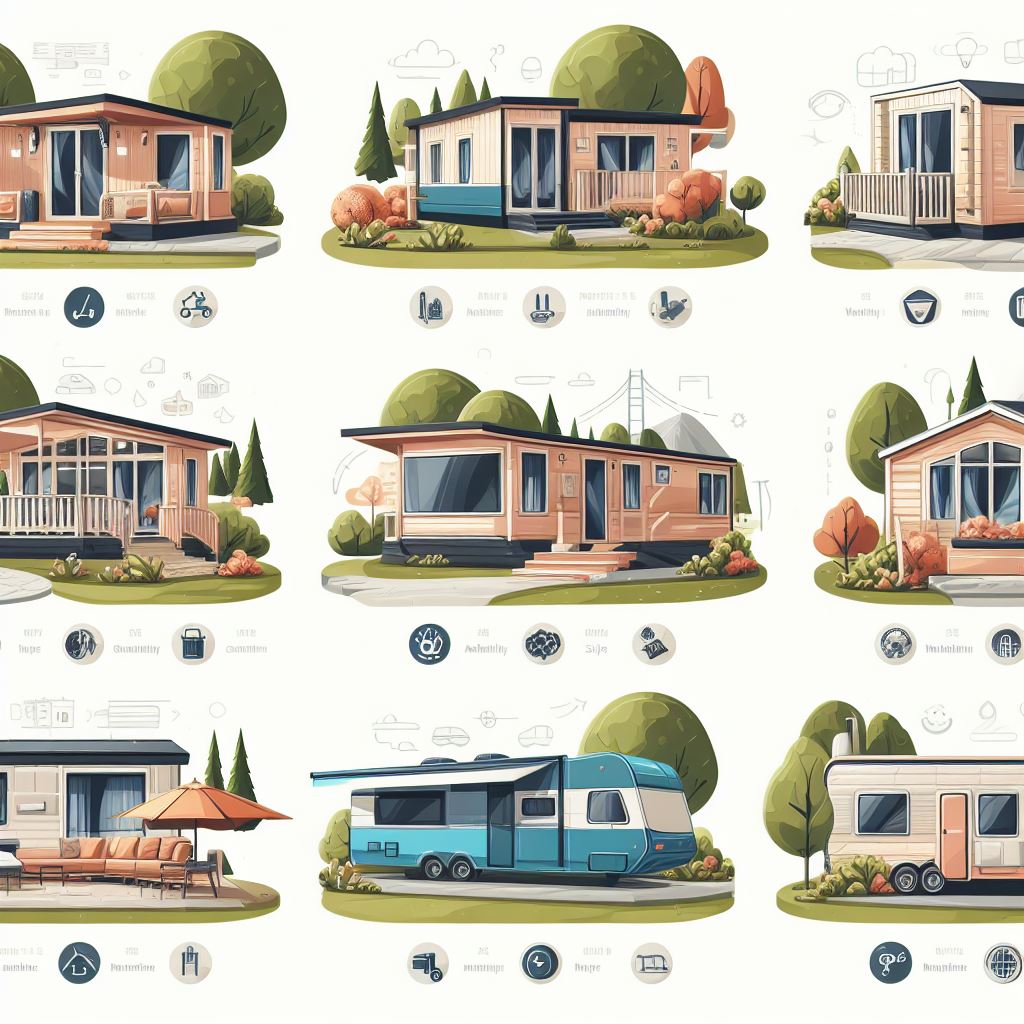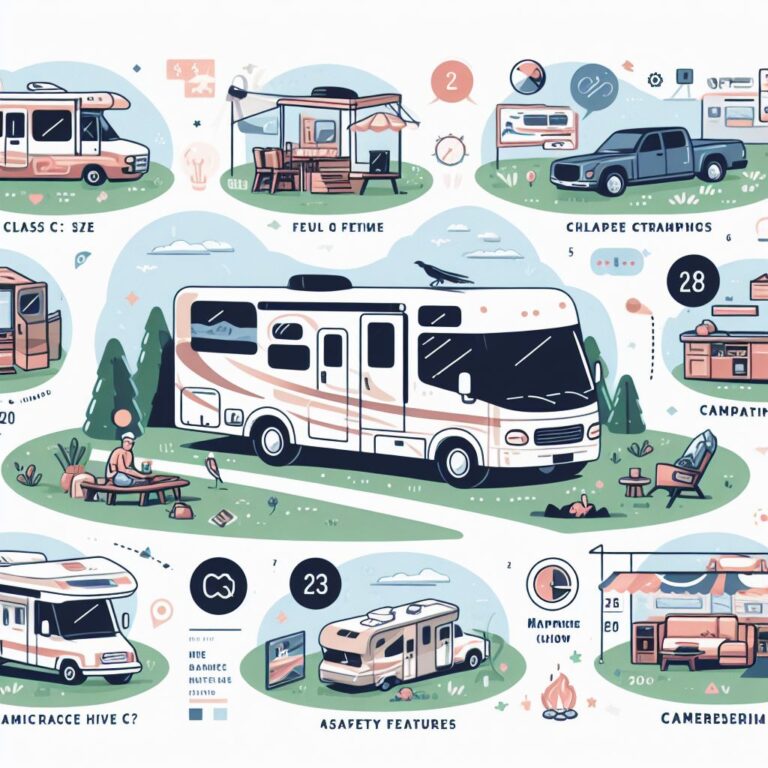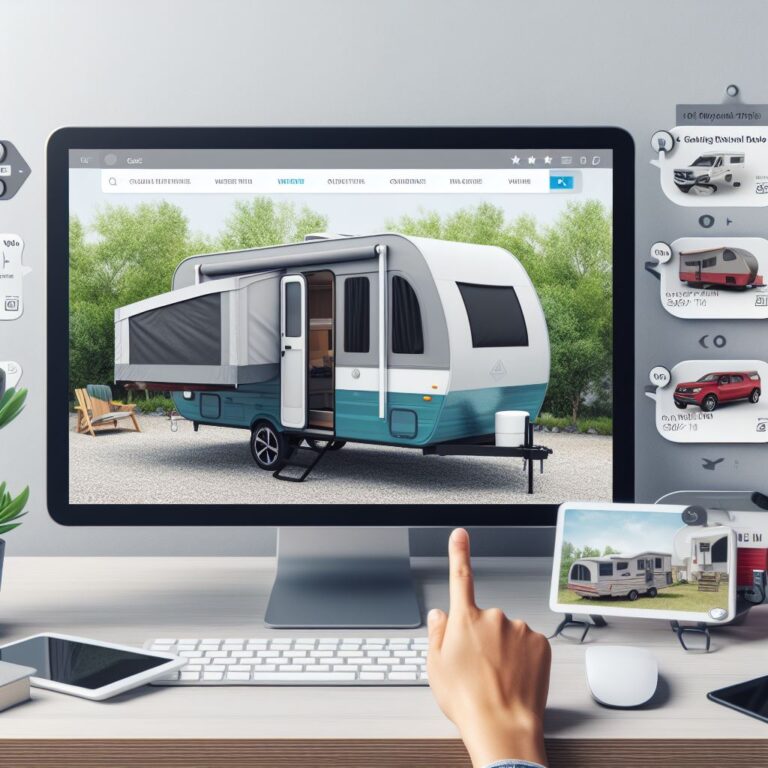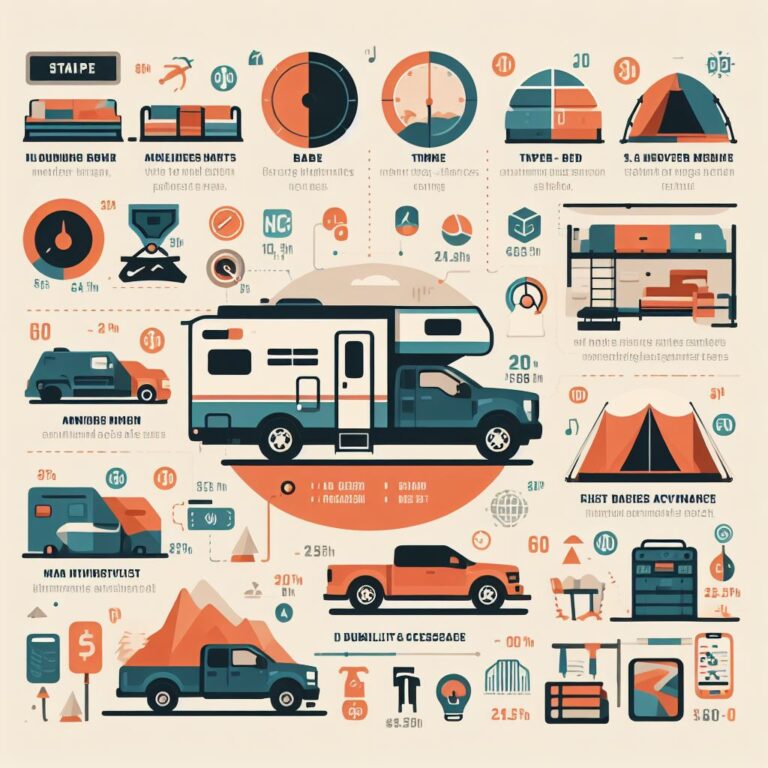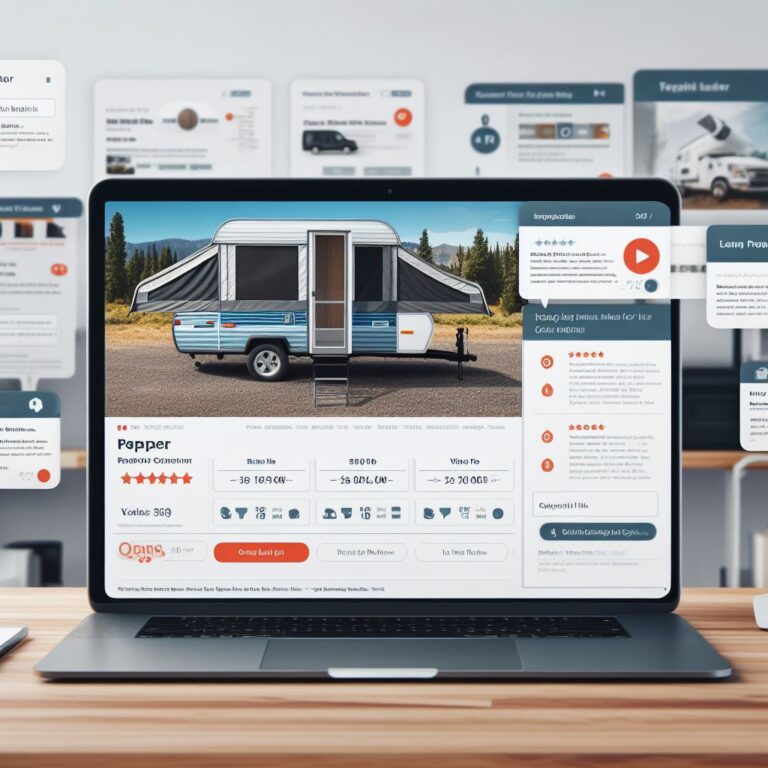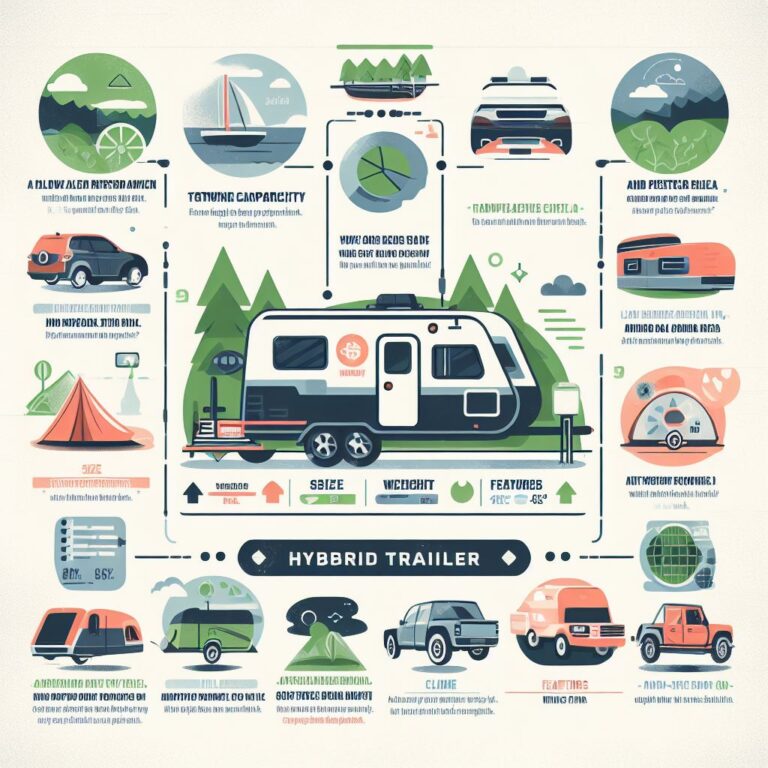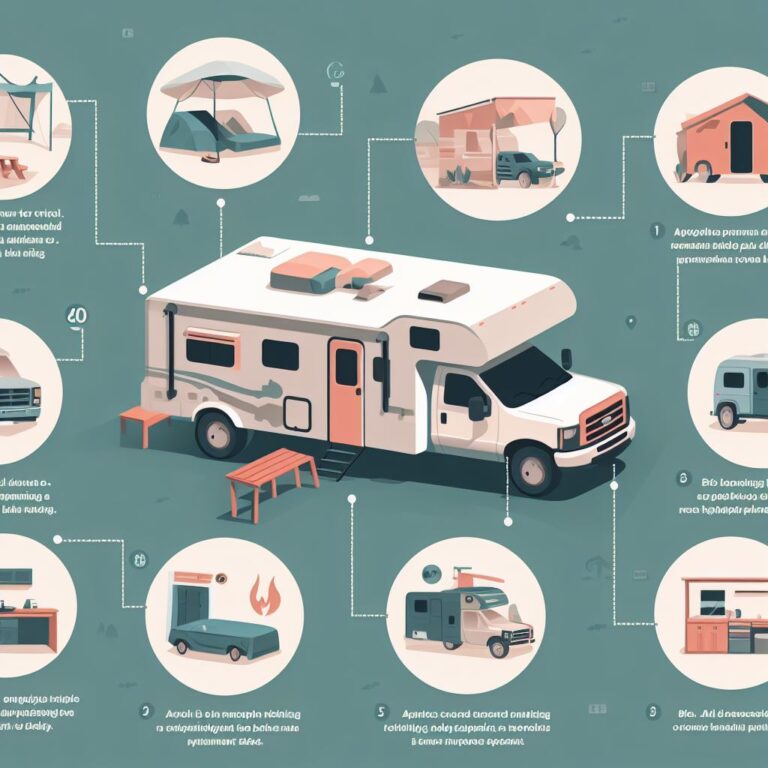How To Choose Park Model $85,000 – $250,000 Sleeps up to 10 9.7 to12.5 M(32-41 FT)
Understanding Your Budget for a Mobile Residence
When planning to invest in a mobile residence, budget consideration is paramount. The first step in comprehending your financial capacity involves examining your monthly income and expenses. This will not only give you a clear understanding of what you can afford but also help you create a savings plan for your potential purchase. It’s essential to be realistic about what you can comfortably afford without straining your daily living expenses, and this includes factoring in unexpected costs or emergencies.
Beyond the initial purchase price of the mobile home, prospective buyers also need to consider recurring expenses. These include lot rent if you plan to park your home in a mobile park, utility costs, insurance, property taxes, and maintenance fees. Having a clear grasp on all these expenses will enable you to set a budget that won’t lead to financial distress. It’s recommended to consult a financial advisor or use a budgeting tool to give you a realistic view of what owning a mobile residence entails.
• The next step in understanding your budget for a mobile residence is to consider the cost of financing. If you plan to finance your purchase, it’s crucial to factor in the interest rates and monthly payments. This will not only determine how much you can afford but also affect the overall cost of your investment.
• Don’t overlook the importance of saving for a down payment. A larger down payment could potentially lower your monthly mortgage payments and make owning a mobile home more affordable in the long run.
• Consider additional costs such as moving expenses or any necessary renovations or repairs that need to be made before moving into your new home. These costs should be factored into your budget from the start.
• It’s also essential to keep in mind potential fluctuations in utility costs, property taxes, insurance premiums, and maintenance fees over time. While these may seem minor at first glance, they can add up significantly over time and should be included when setting up a realistic budget.
• Lastly, always have an emergency fund set aside for unexpected events like sudden repairs or job loss. Having this safety net will provide peace of mind knowing that you are financially prepared even if unforeseen circumstances arise.
Remember that understanding your budget isn’t just about figuring out what you can afford now; it’s about ensuring that you’ll continue being able to afford living comfortably in your mobile residence well into the future without compromising on other aspects of life.
The Importance of Size in a Mobile Home
Choosing the right size for your mobile home can have a significant impact on your overall living experience. It dictates the level of comfort, functionality, and convenience you and your family can enjoy. Buying a home that is either too small or excessively large can lead to challenges such as lack of adequate space, increased maintenance costs and inefficient energy use.
Size also plays a crucial role in determining a mobile home’s affordability. Larger homes often come with a bigger price tag, both in terms of initial cost and long-term upkeep. Conversely, selecting a smaller, well-designed home can help to manage these costs without compromising on the quality of life. Just as important is to remember that the size should accommodate your lifestyle needs, whether it’s having enough space for hobbies or for accommodating occasional guests.
The following are the key points to consider about the importance of size in a mobile home:
• The right size significantly enhances your overall living experience by providing an optimal level of comfort, functionality, and convenience.
• A home that is too small may not provide adequate space for all your needs while one that’s excessively large can lead to increased maintenance costs and inefficient energy use.
• Size plays a crucial role in determining affordability. Larger homes usually come with higher initial cost and long-term upkeep expenses.
• Choosing a smaller but well-designed home can help manage these costs without compromising on quality of life.
• It’s important to select a size that accommodates your lifestyle needs. This could mean having enough room for hobbies or accommodating occasional guests.
In conclusion, when choosing the size of your mobile home, it’s essential to balance between comfort, functionality, affordability and lifestyle requirements.
The Relevance of Sleeping Capacity in a Mobile Home
Choosing the right mobile home often involves considering specific elements, and among these, the sleeping capacity holds prime importance. This particular feature refers to the number of people a mobile home can comfortably accommodate for sleeping. The sleeping capacity should ideally align with your family size or the regular number of occupants. This is a vital factor to factor in when deciding the size and layout of your mobile residence. Small families or couples may be satisfied with a one-bedroom or two-bedroom model, but larger families or those who frequently have guests may require additional sleeping spaces.
An often overlooked aspect in terms of the sleeping capacity is the scope for personal space. Overcrowding a mobile home not only leads to discomfort but also affects the functionality and overall living experience in the home. Hence, it’s recommended to consider sleeping capacity along-with other elements like room sizes, number of bathrooms, and storage spaces. For instance, homes with bunk beds or drop-down beds can offer increased sleeping capacity, making them an excellent choice for those looking to maximize sleeping space. Thus, comprehensively understanding your requirements and preferences can help you select a mobile home with the ideal sleeping capacity.
• The sleeping capacity of a mobile home refers to the number of people it can comfortably accommodate for sleep. It is an essential aspect to consider when choosing a mobile home, especially if you have a large family or frequently host guests.
• The sleeping capacity should ideally match your family size or the regular number of occupants. For small families or couples, a one-bedroom or two-bedroom model may suffice. However, larger families or those who often have visitors might need additional sleeping spaces.
• Personal space is another critical factor linked with the sleeping capacity that is often overlooked. Overcrowding in a mobile home not only leads to discomfort but also hampers its functionality and overall living experience.
• When considering the sleeping capacity, one should also take into account other elements like room sizes, number of bathrooms and storage spaces available in the house.
• Mobile homes equipped with bunk beds or drop-down beds can provide increased sleeping capacity without compromising on personal space. Such models are an excellent choice for those looking to maximize their sleeping area without requiring more rooms.
In conclusion:
• Understanding your specific needs and preferences thoroughly will enable you to choose a mobile home with just the right amount of sleep areas suitable for your lifestyle.
• A well-thought-out decision regarding this will ensure comfort and convenience while living in your mobile residence
Factors to Consider When Selecting a Mobile Residence
When purchasing a mobile residence, it is essential to remember that cost isn’t the only criteria to base your decision on; location, size, design, and features should all play integral roles in the selection process. For example, a money-saving deal on a large, luxurious mobile home may seem appealing, but if it’s situated far from amenities or lacks practical features you need, it may not be the best choice for you.
Regular consideration should be given to the property’s durability. Mobile homes aren’t usually as robust as conventional brick and mortar homes, but a quality mobile residence should still withstand weather changes and regular use. Look at the materials used for the construction of the house, its age, and condition. It’s critical to also investigate hazards associated with the location of the home, such as flooding or landslides.
Another aspect to consider is the community in which your potential mobile residence is located. The atmosphere, rules, and regulations of a mobile home park can significantly impact your living experience. It’s also essential to think about the cost of lot rent as this will be an ongoing expense.
Here are some key factors to remember when selecting a mobile residence:
• Location: This includes not only geographical location but proximity to amenities such as shops, schools, and hospitals. Also consider the safety of the area.
• Size and Design: Ensure that the size of the mobile home suits your needs and preferences. Check if it has enough rooms or space for expansion should you need it in future.
• Features: Pay attention to practical features like heating systems, insulation levels, plumbing condition etc.
• Durability: Look at how well-built and maintained a property is before making a decision. Consider factors such as weather resistance and age of construction materials used.
• Community Rules & Regulations: Understand what kind of lifestyle restrictions might come with living within particular communities or parks – these could include pet policies or visitor rules among others.
• Cost Implications Beyond Purchase Price: Besides initial acquisition price, factor in additional costs like lot rent charges or maintenance fees related with owning a mobile home.
Finally yet importantly, always do thorough research before purchasing any type of real estate including mobile residences; seek professional advice if necessary. Remember that buying a house involves more than just finding one you love – it’s about choosing something sustainable for your lifestyle long term too!
Comprehending the Specifications of a Mobile Home
When choosing a mobile home, understanding its specifications is crucial. These include the size, weight, and type of the mobile dwelling. The size of a mobile home not only dictates the living space provided, but it can also impact the cost, as larger homes typically require more resources and labor to build. Weight too is an important factor as it determines the suitability of a vehicle to tow your home. Different types of mobile homes, including single section, multi-section, and motorhomes, offer varying levels of portability and comfort, making it important to discern amongst them as per your unique requirements.
Taking into account the construction and insulation standards is also essential. Canadian winters can be harsh, so look for a home that is well-insulated and designed to withstand extreme weather conditions. Also, consider the home’s energy efficiency rating. More energy-efficient homes might cost more upfront, but they can save you money in the long term by reducing heating and cooling costs. Another specification to consider is the layout or floor plan. It should be functional for your family size and lifestyle. Determining these specifications and aligning them to your needs is key in making an informed decision while investing in a mobile home.
In order to make an informed decision about which mobile home is best for you, it’s important to consider the following specifications:
• Size: Larger homes offer more living space but also require more resources and labor to build, impacting their cost. Be sure that the size of your mobile home matches both your spatial needs and budget.
• Weight: This factor determines if a vehicle can tow your home or not. Always check the weight specification before making a purchase.
• Type of Mobile Home: Single section, multi-section, and motorhomes all have different levels of portability and comfort. Choose one that suits your lifestyle requirements.
• Construction Standards: The quality of construction will determine how durable your mobile home is. Make sure it’s built robustly enough to withstand harsh weather conditions.
• Insulation Standards: In colder climates like Canada, proper insulation is crucial for maintaining comfortable temperatures inside the house during winter months.
• Energy Efficiency Rating: Homes with higher energy efficiency ratings may cost more upfront but can save you money in the long term as they help reduce heating and cooling costs.
• Layout/Floor Plan: The layout should be functional for your family size and lifestyle. It should allow easy movement within the house while providing adequate privacy when needed.
By understanding these specifications thoroughly, you’ll be better equipped to choose a mobile home that fits perfectly into your life – offering convenience without compromising on comfort or breaking bank balance unnecessarily.
Mobile Home Features Worth Paying For
When it comes to purchasing a mobile home, certain features stand out as worth the investment. The first one is energy efficiency. As energy costs continue to rise, having an energy-efficient mobile home can help save significant amounts of money over time. Features like high-quality insulation, energy-efficient appliances, and high-performance windows can lead to substantial savings on your monthly utility bills. Additionally, these features are beneficial for the environment, making your mobile home more sustainable and eco-friendly.
Another crucial feature to consider is the quality of the home’s construction. Look for mobile homes constructed with top-level craftsmanship and durable materials. These aspects contribute to the longevity of your mobile home and help maintain its value over time. Furthermore, quality construction ensures that your home will more effectively resist weather-related damage, so this feature can save you on potential repair and replacement costs. Remember, a well-constructed mobile home offers not only a pleasant and comfortable living space but also peace of mind knowing that your investment will stand the test of time.
• One more feature worth investing in is the home’s layout and size. Depending on your family’s needs, you may want to opt for a mobile home with multiple bedrooms or bathrooms, an open floor plan, or ample storage space. A well-designed layout can greatly enhance your living experience by providing adequate space for all members of the household and facilitating easy movement around the house.
• The location of your mobile home also plays a significant role in its value. If possible, choose a plot that offers scenic views or proximity to amenities like schools, hospitals, shopping centers and recreational facilities. This will not only make daily life more convenient but also increase the resale value of your property.
• Modern conveniences are another key feature to look out for when purchasing a mobile home. These could include features such as built-in appliances, central heating and cooling systems, smart-home technology integrations (like security systems), and pre-installed internet connections.
• Lastly, consider whether the mobile home comes with any outdoor features such as a deck or patio area which can be used for relaxation or entertainment purposes. Outdoor spaces add considerable appeal to any dwelling place while offering additional room for activities.
In conclusion:
– Energy efficiency should be prioritized due to rising energy costs.
– Quality construction ensures longevity and resistance against weather damage.
– A well-planned layout caters to individual lifestyle needs.
– Location contributes significantly towards convenience as well as potential resale value.
– Modern conveniences provide comfort along with technological advancements.
– Outdoor features offer extra space while enhancing overall appeal.
Evaluating the Quality of a Mobile Residence
When looking at purchasing a mobile residence, a critical step is the examination of its quality. It can be compared to vetting a traditional house or any other property type. Buyers must be well-versed in the product and particularly observant while inspecting the unit, making sure to gauge the quality of construction, the durability of materials, the integrity of the structure, and how well it has been maintained. Inherent issues in these aspects can lead to costly repairs, lower longevity, and a depreciation of the asset’s value over time, highlighting the importance of this evaluation.
Simultaneously, a thorough understanding of the mobile home’s specifications is also a necessity, which extends to knowing the year of make, the manufacturing company, the model, the floor plans, any updates or renovations, the number of sleeping rooms, sizes, and the list of features, amongst other things. Furthermore, for pre-owned mobile homes, buyers should scrutinize obvious signs of wear and tear, the efficacy of utilities, and past insurance claims if available — it helps in making a well-informed decision and safeguards against potential issues.
The following are some key areas to focus on when evaluating the quality of a mobile residence:
• Construction Quality: This involves checking the overall build and craftsmanship of the unit. It includes inspecting walls, ceilings, floors, doors, windows and exterior finishes for signs of poor construction such as uneven surfaces or gaps.
• Material Durability: The type of materials used in constructing a mobile home can significantly impact its durability. Buyers should look out for high-quality materials that can withstand harsh weather conditions and regular use over time.
• Structural Integrity: Assessing the structural integrity is essential to ensure that there are no underlying issues with the foundation or frame which could lead to significant problems down the line.
• Maintenance Level: A well-maintained mobile residence will typically have fewer issues than one that has been neglected. Check for signs of regular upkeep such as fresh paint, clean gutters, and properly functioning appliances.
When it comes to understanding specifications:
• Year Of Make & Manufacturer Details: Knowing when a mobile home was built and by whom gives insight into its potential quality level — different manufacturers may vary in their standards.
• Model & Floor Plans: Understanding these aspects helps buyers gauge if space will suit their needs effectively while also providing an idea about possible modifications or renovations required.
• Updates Or Renovations Done: Any recent improvements could add value but also indicate previous problems. Be sure to ask what work has been done and why it was necessary.
For pre-owned homes specifically:
• Signs Of Wear And Tear: Look out for obvious signs like peeling paint or worn-out flooring which might suggest more hidden damage elsewhere.
• Utility Efficacy : Ensure all utilities including water supply, electricity connections , heating systems etc., function efficiently without any glitches.
• Past Insurance Claims : If possible get information on any past insurance claims made on property .This helps understand if there were serious damages previously requiring repairs.
Investing in a Mobile Home: What You Need to Know
There’s more to buying a mobile home than just picking one that catches your eye. A prospective mobile home owner must consider the financial implications, quality of the home, and its suitability to their lifestyle. From an initial budget, ongoing maintenance costs, and potential resale value, understanding the costs associated with mobile homes is critical. Beautiful, modern designs and surprisingly spacious interiors can be deceiving, without a proper evaluation of the home’s construction and quality, buyers can find themselves confronted with unexpected repairs and issues.
Next, buyers should evaluate whether the mobile home suits their lifestyle and needs. Factors such as the home’s size, sleeping capacity, and included amenities will greatly influence living satisfaction. The ideal mobile home should accommodate the buyer’s family comfortably and include necessary appliances and features. Additionally, location is an often-underappreciated factor in purchasing a mobile home. The proximity to work, school, shopping, healthcare facilities, and public transportation should be satisfactory.
When investing in a mobile home, there are several key points to consider:
• Financial implications: It’s important to understand the costs associated with purchasing and maintaining a mobile home. This includes not only the initial purchase price but also ongoing expenses such as maintenance, insurance, and property taxes.
• Quality of the home: The construction quality of the mobile home should be thoroughly evaluated. Potential buyers should check for any signs of damage or wear that could lead to costly repairs down the line.
• Suitability for lifestyle: A mobile home must meet your specific needs and lifestyle demands. Consider factors like its size, sleeping capacity, included amenities, etc., before making a decision.
• Resale value potential: Mobile homes can depreciate over time so it’s crucial to consider their potential resale value when buying one.
• Location considerations: The location of your prospective mobile home plays a significant role in determining its convenience and appeal. Proximity to essential facilities such as work places, schools, shopping centers, healthcare providers and public transportation is an important factor to take into account.
In conclusion, investing in a mobile home requires careful consideration on various fronts – financials being paramount among them all. However with due diligence covering aspects like quality checks and suitability assessment coupled with strategic selection based on location preferences; this could turn out to be an investment worth every penny!
Making the Most of Your Mobile Home Purchase
Embarking on a mobile home purchase requires a thorough understanding of what the process entails. It’s not just about selecting a home that fits within your budget or has the right number of bedrooms. There’s more to it than that. You need to look at the quality of the mobile home, the community where it’s located, the specifications, and other features that make it worth the investment. A wise mobile home purchase, after all, should not only provide you with a comfortable space to live in, but also meet your lifestyle needs and preferences.
Additionally, when searching for a mobile home, paying attention to the size and sleeping capacity is critical. The size directly affects its ‘liveability’ — the larger the space, the more room you and your family have for your belongings and activities. Meanwhile, sleeping capacity is a good indicator of whether the mobile home can accommodate your family comfortably or not. Remember, living in a cramped space can lead to unwanted stress and discomfort over the long term. Therefore, laying extra emphasis on these factors will ensure that you make the most of your mobile home purchase.
Here are some key points to consider when buying a mobile home:
• Look at the Quality: The quality of your mobile home is crucial. Consider factors such as its construction, materials used and overall condition. A well-built mobile home will last longer, require less maintenance and provide better living conditions.
• Location Matters: The community where your mobile home is located can greatly impact your lifestyle. Check out the neighborhood’s amenities, safety levels, proximity to essential services like schools or hospitals, and the friendliness of other residents.
• Examine Specifications: Be sure to review all specifications before making a purchase decision. This includes things like insulation ratings, roof pitch and window types which can affect energy efficiency and comfort levels.
• Consider Additional Features: Extra features such as outdoor decks or storage sheds may add value to your investment. They also have potential functionality benefits that could enhance your living experience in the mobile home.
• Size & Sleeping Capacity: Pay attention to both size and sleeping capacity when choosing a mobile home. These two aspects directly influence how comfortable you’ll be in it — especially if you’re part of a large family or plan on having guests over frequently.
Remember that purchasing a mobile home isn’t just about finding one within your budget; it’s also about ensuring it aligns with what you want from life in terms of comfortability, convenience and lifestyle fit.
Extra Considerations for Buying a Mobile Home
In addition to understanding the price, size, and sleeping capacity of a mobile home, there are several other factors that one should keep in mind when planning a purchase. Consider if the mobile home park or land where you plan to place the home has any stipulations about home size, age or aesthetic appeal. Understanding these requirements prior to making your purchase can save you a significant amount of time, money as well as mitigating possible legal hurdles. Investigate any potential zoning laws that may dictate where you can or cannot place your mobile home.
Another critical aspect to consider is the home’s energy efficiency. Modern mobile homes are typically built to be energy efficient, however, older, used models might not meet current standards. It is beneficial to examine the insulation, windows, doors, and the heating and cooling unit of the home for energy efficiency. This is not only advantageous for the environment, but could also lead to significant savings on future utility bills. Accessibility of basic amenities like water, electricity, and sewage should also be checked. These extra considerations can greatly aid in ensuring a smooth and successful mobile home purchase.
• Check the mobile home park or land stipulations: Different parks and lands may have different rules regarding the size, age, and aesthetic of homes allowed. It’s important to understand these requirements before making your purchase as it can save you time, money, and potential legal issues.
• Investigate zoning laws: Depending on where you plan to place your mobile home, there might be specific zoning laws that dictate what can and cannot be done. Make sure to research these regulations beforehand to avoid any surprises down the line.
• Assess energy efficiency: While modern mobile homes are typically built with energy efficiency in mind, older models might not meet current standards. Take a close look at aspects such as insulation, windows, doors, heating/cooling units etc., for their energy efficiency levels.
• Evaluate accessibility of basic amenities: Essential services like water supply, electricity connection and sewage systems should also be checked thoroughly before finalizing your purchase decision.
In conclusion:
By taking into account all these extra considerations when buying a mobile home – from understanding local stipulations & zoning laws to assessing the property’s energy-efficiency & amenity access – you can ensure a smoother purchasing process while potentially saving significant amounts of both time & money.
What factors should I consider when determining my budget for a mobile home?
When establishing your budget, you should consider the cost of the mobile home itself, the cost of land if you’re not planning to rent a lot, any necessary utility installations, the cost of home insurance, potential property taxes, and the cost of ongoing maintenance.
How does the size of a mobile home affect its cost and functionality?
The size of a mobile home often directly impacts its cost, with larger homes being more expensive. However, a larger home may also offer more space for personal belongings, additional living areas, or extra bedrooms. It’s important to balance the cost with your needs and lifestyle.
Why is sleeping capacity important when considering a mobile home?
Sleep capacity is significant because it determines how many people can comfortably live in the home. If you have a large family or often have overnight guests, you might require a mobile home with a higher sleeping capacity.
What factors should I consider when selecting a mobile home?
When selecting a mobile home, consider factors like your budget, the size and layout of the home, the number of bedrooms and bathrooms, the quality of construction, the age and condition of the home, and the features and amenities it includes.
What kind of specifications should I look for in a mobile home?
Look for specifications such as the size and layout of the home, the materials used in construction, the type and efficiency of the heating and cooling systems, the quality of the insulation, and the condition of the roof and windows.
What are some features that are worth paying extra for in a mobile home?
Features that may be worth paying extra for include energy-efficient appliances, high-quality insulation, a larger kitchen or bathroom, a deck or patio, a carport or garage, and upgraded finishings and fixtures.
How can I evaluate the quality of a mobile home?
You can evaluate the quality of a mobile home by inspecting it thoroughly, checking for any signs of damage or poor maintenance, asking about the age and condition of various systems and components, and possibly hiring a professional inspector.
What should I know before investing in a mobile home?
Before investing in a mobile home, it’s important to research the market, understand the costs and benefits of mobile home ownership, inspect the home thoroughly, and ensure that you’re prepared for the responsibilities of home ownership.
How can I make the most of my mobile home purchase?
To make the most of your purchase, it’s crucial to choose a home that fits your needs and budget, negotiate a fair price, maintain the home properly, and make any necessary upgrades or improvements to enhance its value and comfort.
What are some extra considerations when buying a mobile home?
Extra considerations might include the location and community where the home is located, the cost and availability of financing, the cost of moving the home if necessary, and the potential for property value appreciation or depreciation.
- How To Choose TIPHOPE RV Accessories - February 10, 2024
- How To Choose Joinfworld RV Accessories - February 10, 2024
- How To Choose Conntek RV Accessories - February 9, 2024

